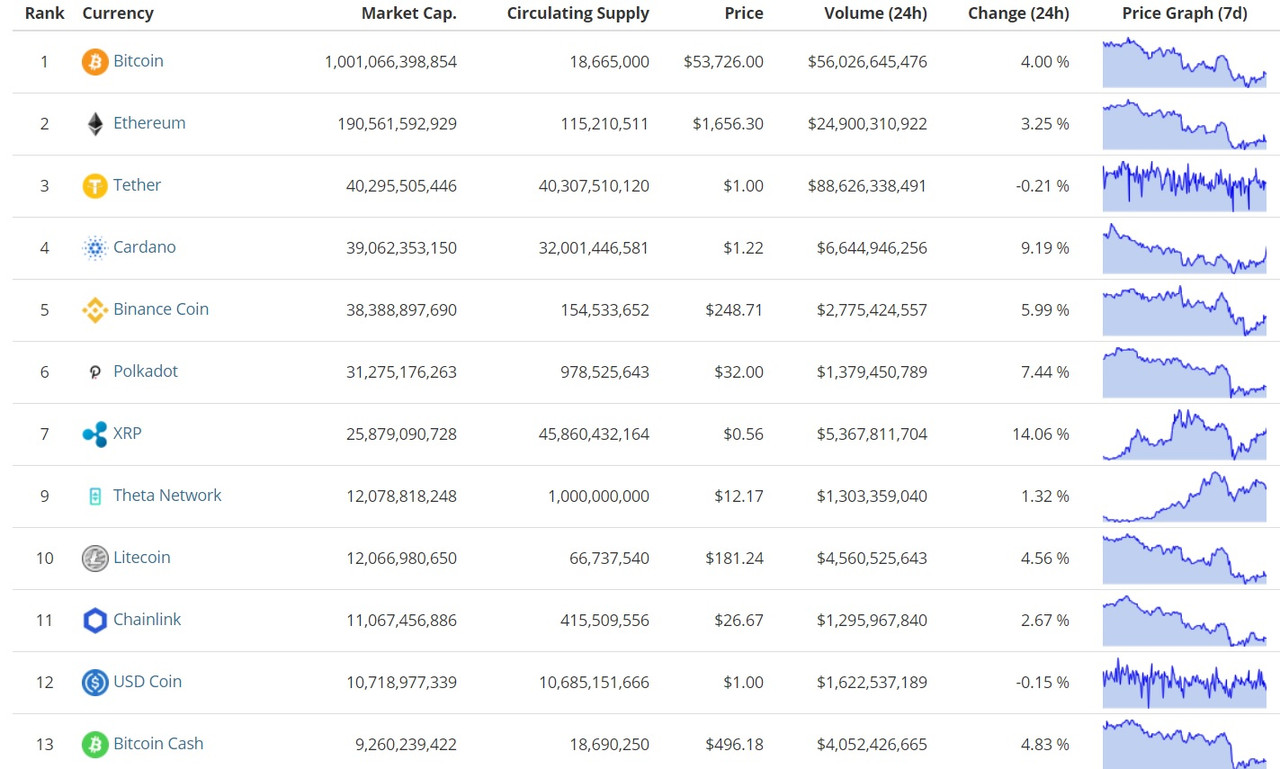
Posted on 03/26/2021 7:34:50 AM PDT by aMorePerfectUnion
By using energy to validate transactions in a way that is independent of any existing grid or source, Bitcoin mining will save the climate.
It’s in vogue to think that Bitcoin is accelerating the climate crisis.
The common argument is that Bitcoin uses lots of energy, which must mean more carbon emissions, so as a result, it’s ruining the climate. Of course, critics also seem enraged at Bitcoin itself, believing it doesn’t do anything useful beyond facilitating a casino for Reddit memelords and “libertarian nerds” to get rich in. To these critics, Bitcoin is a totally useless, degenerate system that will end up consuming all energy on the planet in 18 months if we don’t stop it right now.
While this fatalist prediction might succeed in earning clout on Twitter, it is fortunately far from the truth. Incredibly far. In fact, if I may do some clout chasing of my own: the prediction that Bitcoin will destroy the climate is the literal opposite of what Bitcoin is likely to do.
Bitcoin will save our Earth.
By the end of this read, you will understand how Bitcoin uses energy to validate transactions, and how this is driving more efficient energy usage and lower emissions for the entire global energy grid, not just the Bitcoin system. Why Does Bitcoin Need Energy?
This is the first part that confuses many people, because Bitcoin is a novel type of monetary technology which has no analogue. Importantly, Bitcoin is not Visa or PayPal — and it uses energy for different purposes.
Bitcoin requires energy in order to secure the history of transactions. A recipient of bitcoin can reasonably trust that the bitcoin they’ve received is really theirs because miners expended energy, and therefore incurred an unavoidable real-world cost, in order to fit that transaction into a block of transactions and hitch it onto the “blockchain.” We call this strong assurance that a transaction is completed “finality.”
If you take out that energy expenditure, there is no cost associated with changing a transaction. The original sender could decide later to change their transaction so it points to another one of their wallets instead of your wallet. Poof! Now you never got paid, or maybe the money is in two places at once. That just won’t fly in a monetary or payments system. This little copy-paste problem is known in nerd circles as the “double-spend problem.” Bitcoin is the only system which solves this problem at scale without a trusted third party, and energy usage is the key component of that solution.
The more energy that Bitcoin consumes, the more cost is incurred in securing the chain. More security means an “attack” on the history of transactions is more expensive — so expensive that double spending is uneconomical or downright impossible. The more cost incurred to secure the chain after your transaction, the more “final” that transaction is.
> More energy consumption = more security.
Many critics argue that the Bitcoin energy consumption per transaction compared to a Visa payment proves the horrible inefficiency of the Bitcoin network. This plays on our assumption that a “transaction” is always something small — like buying a cup of coffee. However, a “transaction” can also be a group of these smaller transactions — a “batch” — so that one “transaction” on a payment system like Bitcoin or Fedwire can actually represent millions of coffee purchases.
Critics of Bitcoin’s energy use also miss the key point of why Bitcoin uses energy. Bitcoin is not just a payments system — it is also an entirely new form of scarce, divisible, portable commodity — aka, money.
> Bitcoin consumes energy primarily to ensure the scarcity of Bitcoins and finality of transactions without a trusted third party.
Other monetary systems, like the U.S. dollar, achieve scarcity and finality — key properties of money — through trust. You and I need to trust politicians and bankers to be good stewards of the monetary system. We entrust with them the power to literally create currency out of thin air, and they have the power to reverse or block transactions. Most of these gatekeepers are not elected officials either — they are the chairmen and employees of central banks and commercial banks. And they create new money and allocate it as they see fit, fiendishly. New money is created every time a government sells bonds to its central bank or banks extend loans — which is often. Especially in 2020.
[EXCERPT - MORE AT LINK AND WORTH FINISHING ARTICLE]
I've thought about that statement and disagree to some degree.
US dollars (here) are simply how we price tangible things when we buy or sell. It is a yardstick. It occupies our brains as the touchstone of valuation. Will it always be that way?
Historically, when currencies implode, people begin to store wealth in other things - gold and silver, art, etc.
To access the banking system in this world - for now - you need to convert from crypto to your country currency.
Will the day come crypto stands alone with direct transfer to another's mobile phone? The technology is already there. It is just not widely deployed.
I think we are in a transition phase. It won't be a smooth line.
“Except in other countries where it is priced in the world’s major currencies.”
I did not mean to imply that its value is only in dollars. It is valued in currency.
“And that should be asked of the banking system too then..”
I am not aware of any bank or credit system saying that the more energy they consume on a transaction, the more secure, the more final (i.e. safe) that transaction becomes. If your point is that such electronic transactions consume (mega) energy, that is another question.
I don’t disagree that bitcoin can be valued in other “forms of currency” like silver and gold, or copper or bales of cotton. The reality is that bitcoin ties itself to currency. Don’t forget the utility value of currency. It’s hard to move bales of cotton to get a haircut and then get change in bitcoin.
Besides, what is the probability that all currencies will implode at the same time? Unless bitcoin can be held and transacted easily by billions of people before a currency implosion, a person with bitcoin “wealth” has nowhere to transact very easily. In fact, the energy needed to transact might not be available in the place where the currency imploded.
I think the root of all evil is rather the lust for wealth. The future of money is destined to be merely a bookeeping entry in your account at the Data Bank and your pocket money will just be smoke rings
in your concious mind and the sleeping nightmares about it running out.
According to Strongs Dictionary the definition of money as Avarice in 1 Timothy 6 10-
Avarice “An inordinate desire of gaining and possessing wealth; covetousness; cupidity; greediness, or insatiable desire of gain. “
“The US seems to be getting serious about a central-bank-backed digital currency when the Treasury Secretary and Federal Reserve Chairman hinted this week that a digital dollar is a high-priority project for the US.”
https://techhq.com/2021/03/digital-dollar-is-now-a-high-priority-project-for-the-us/
Nor I...
But everything they do takes energy -buildings, computer systems, security.
How is that going to happen?
“The US seems to be getting serious about a central-bank-backed digital currency when the Treasury Secretary and Federal Reserve Chairman hinted this week that a digital dollar is a high-priority project for the US.”
So what’s different?
Actual cryptocurrencies are distributed ledger systems (DLs). They are independent of centralized authority except for the ecosystem’s initial developers and maintainers. The market and users have the final say, unlike what we have now with central government and banking.
Distributed ledger technology eliminates much of what we need government and banks for, and obviously why TPTB fears it.
...and it will cure the common cold.....

“Bitcoin is the only system which solves this problem at scale without a trusted third party, and energy usage is the key component of that solution.”
When Bitcoin maximalists say things like this they tend to forget about all the other cryptocurrencies out there.
And this part isn’t true (think of all the proof of stake coins out there). Nano provides finality and decentralization with no fees and the proof of work required for their system is extremely tiny compared to bitcoin. The challenge with Nano is that a currency that is free to transact is easily spammed, but the latest round of countermeasures being deployed in Nano should render spam attacks ineffective. (Look up “Time as a Currency/P4Q” on Nano forums if curious.)
“Bitcoin will be under the control of governments soon and all the fun will be over.”
Please explain how that will happen. Have to ROFL every time someone says this with no grasp of how it works.
Absurd NFT PRices Expose a Global Financial House of Cards
https://www.zerohedge.com/news/2021-03-26/absurd-nft-prices-expose-global-financial-house-cards

And Y2K will ki.us all.
Mmmm no. For one thing this article is ignoring how much electricity “mining” takes. Plus the general internet electricity which bitcoin can’t function without. There’s no way it uses less electric than the other forms of digital money (debit cards, EFT, etc). So at best it’s a net zero.

And China’s CCP loves bitcoin to the tune of creating 80% of the world’s bitcoin”
source?
However, this author slays some ENORMOUS straw men to quiet crypto critics.”
Elaborate if you could? Not trying to be argumentative...just want to know what your’re referring to. Many thanks.
Bottom line, without the existence government issued currencies, bitcoin really has “no value”.”
Certainly much of its value comes from the fact that it is scarce (limited in supply) and government money isn’t. If we know anything from 2020, it’s that government will print as much money as it feels like.
Disclaimer: Opinions posted on Free Republic are those of the individual posters and do not necessarily represent the opinion of Free Republic or its management. All materials posted herein are protected by copyright law and the exemption for fair use of copyrighted works.